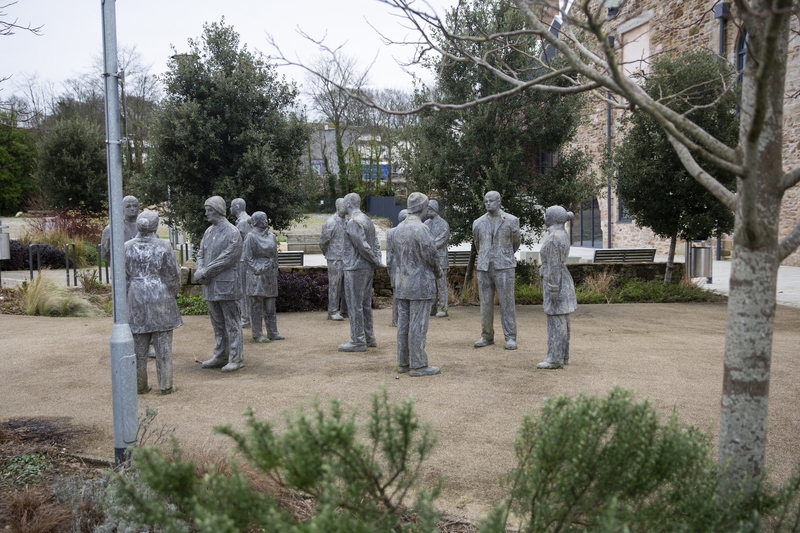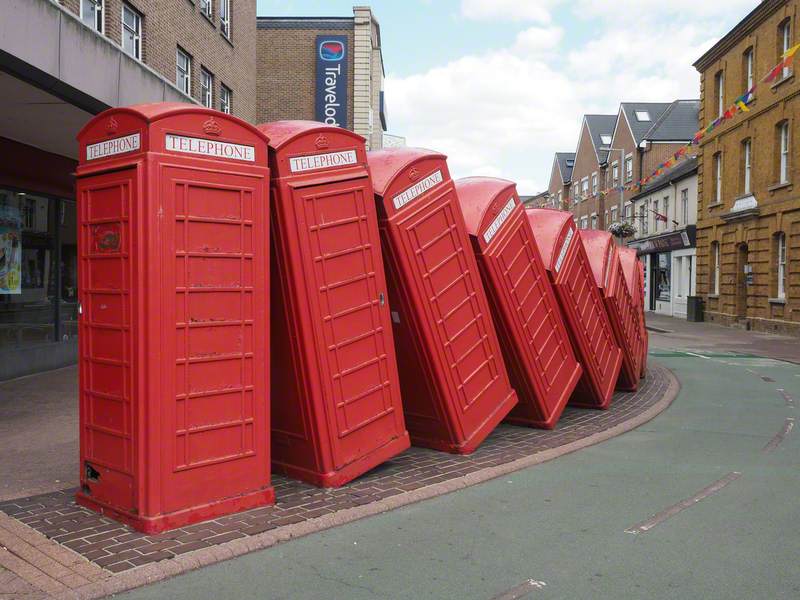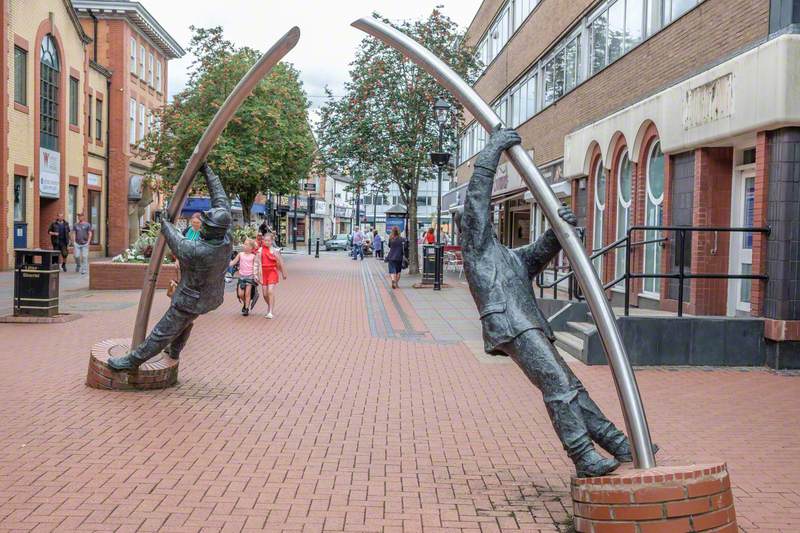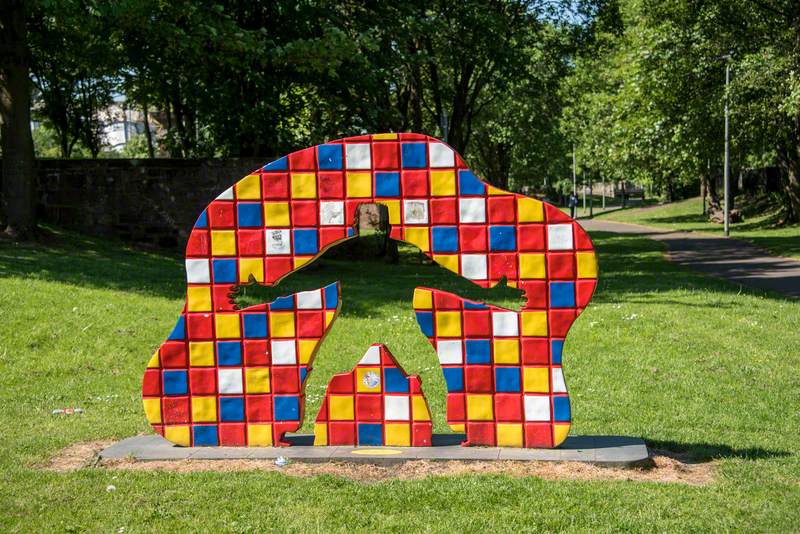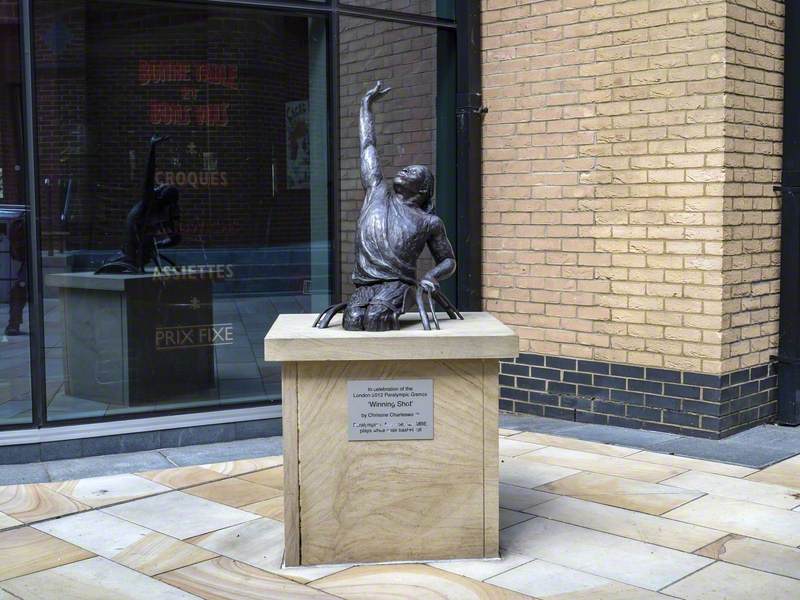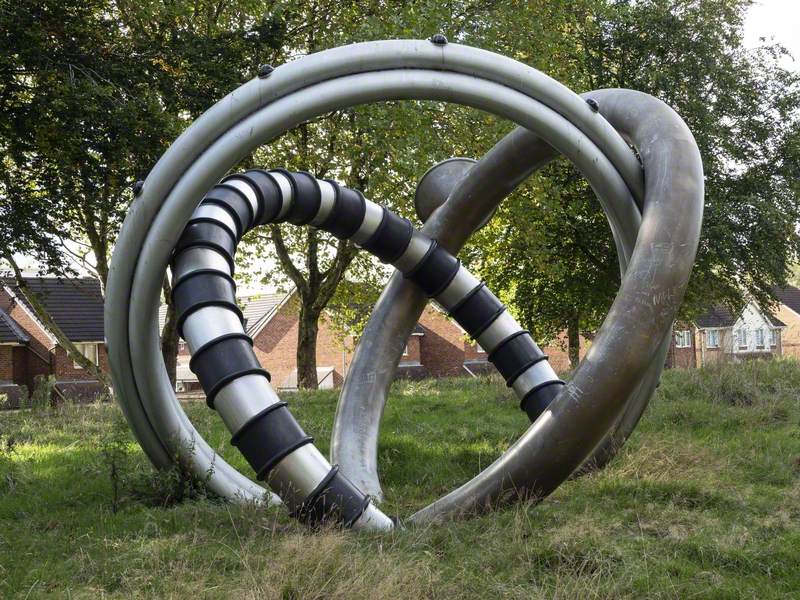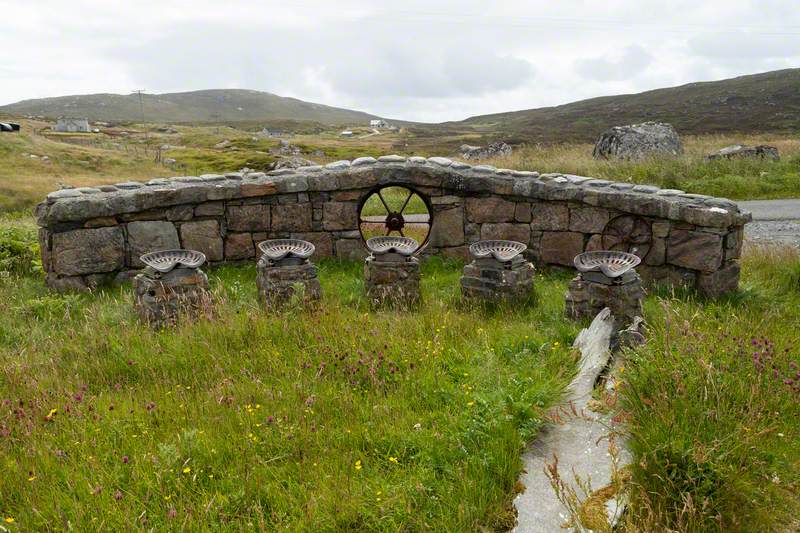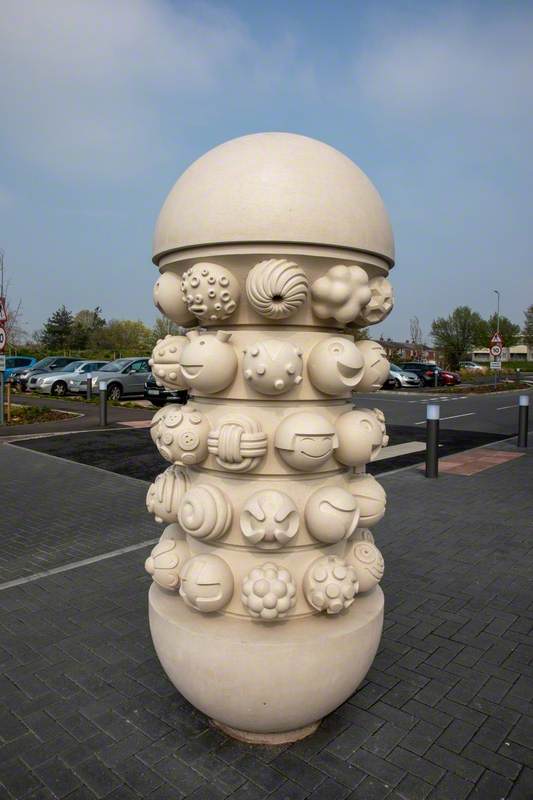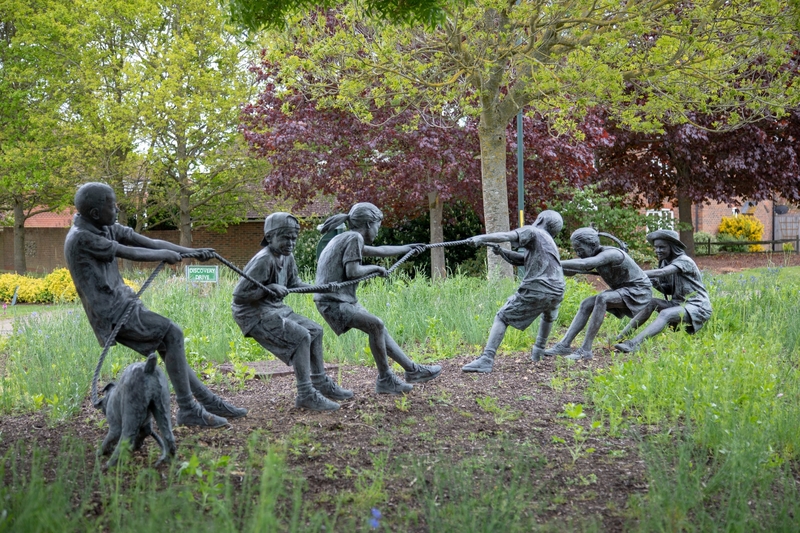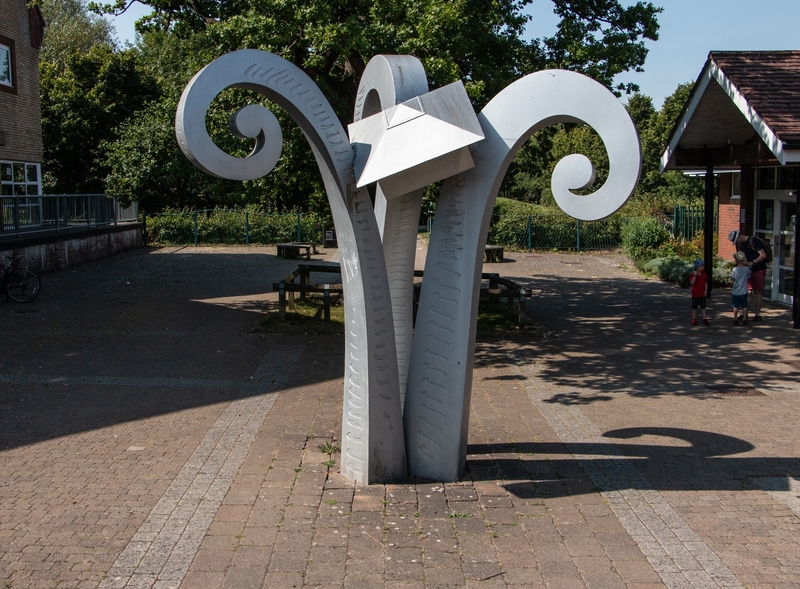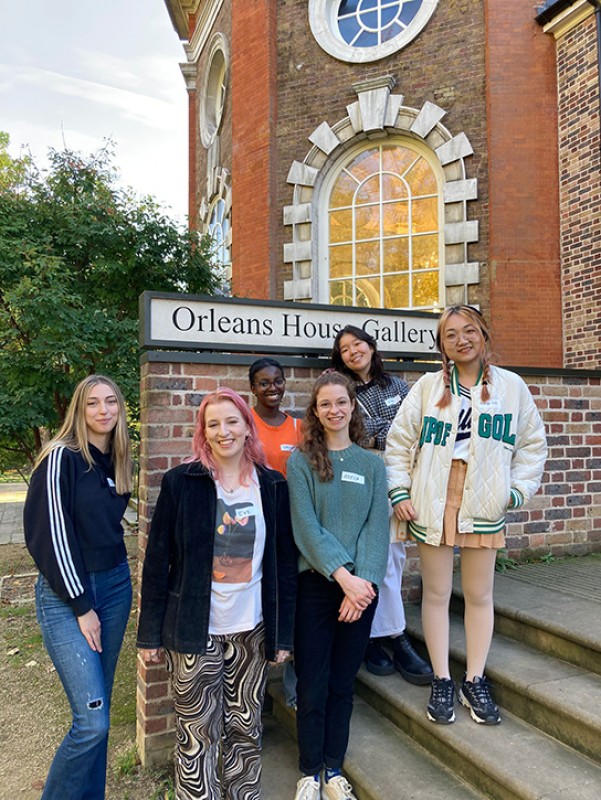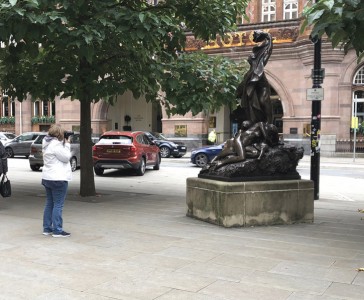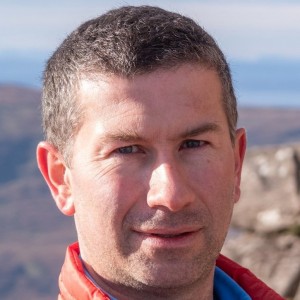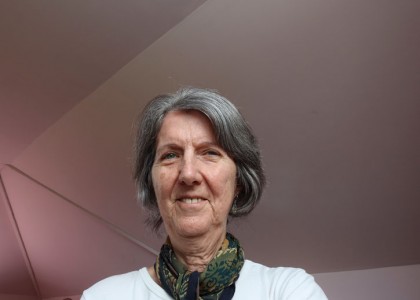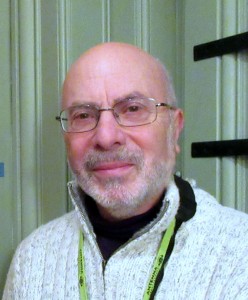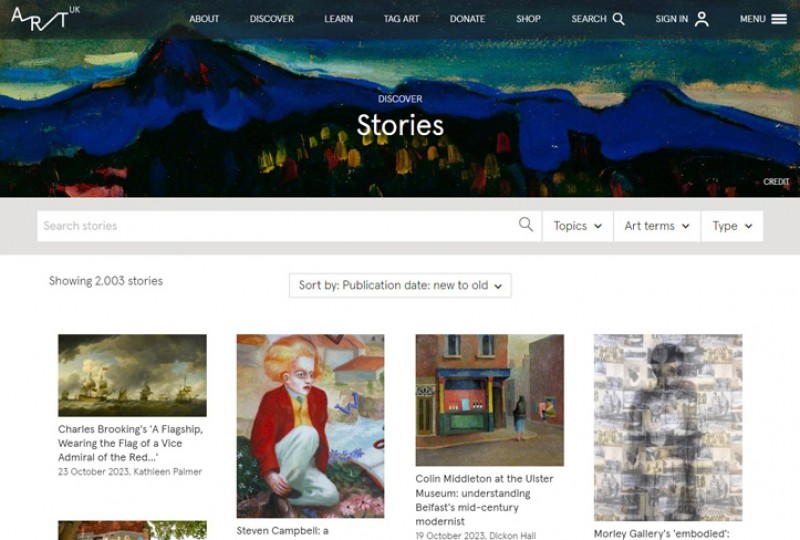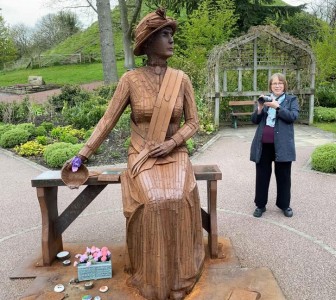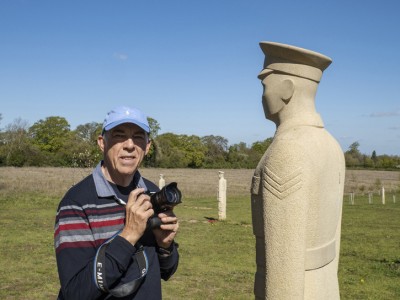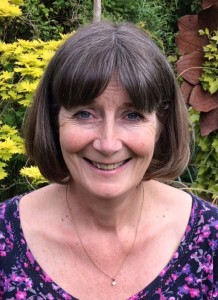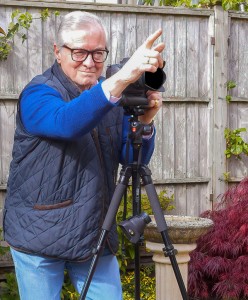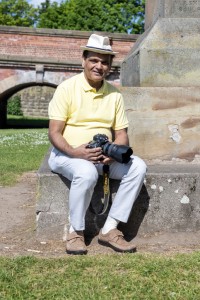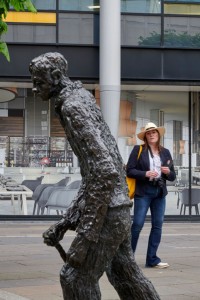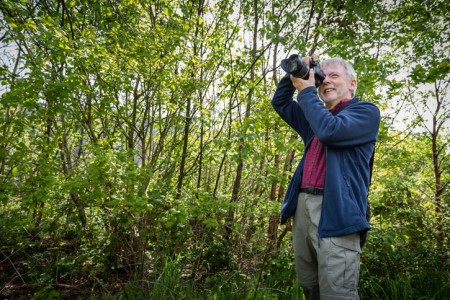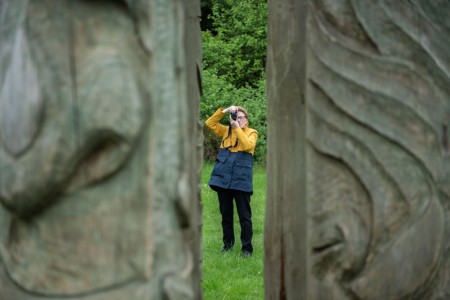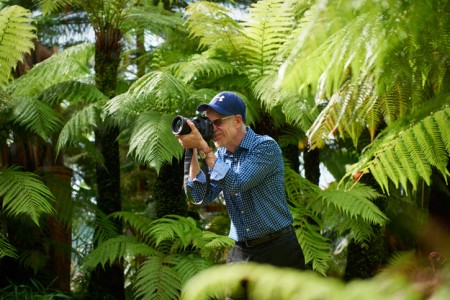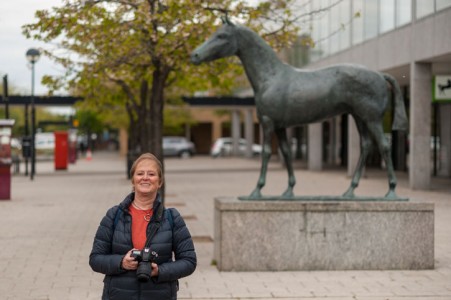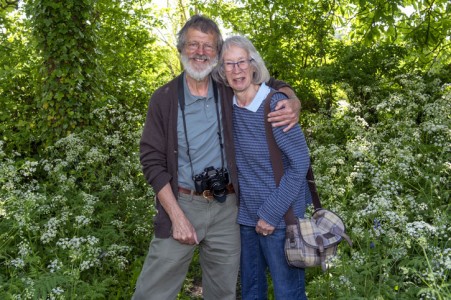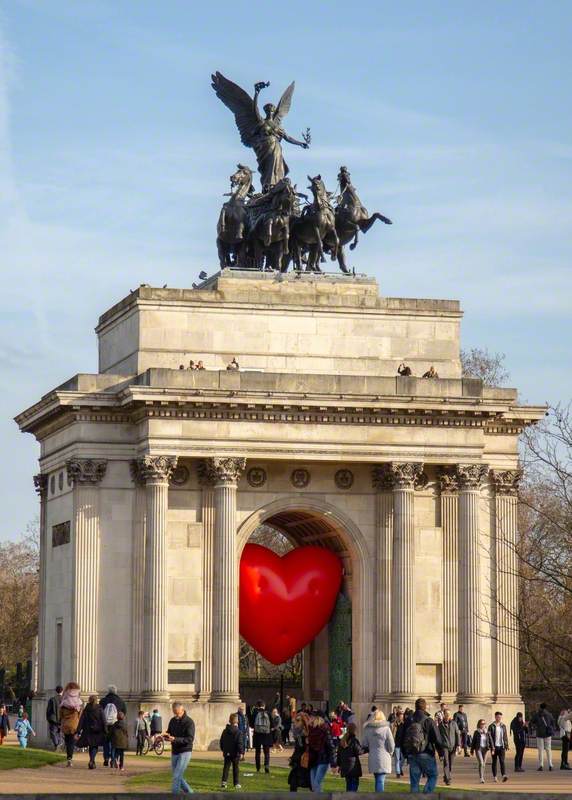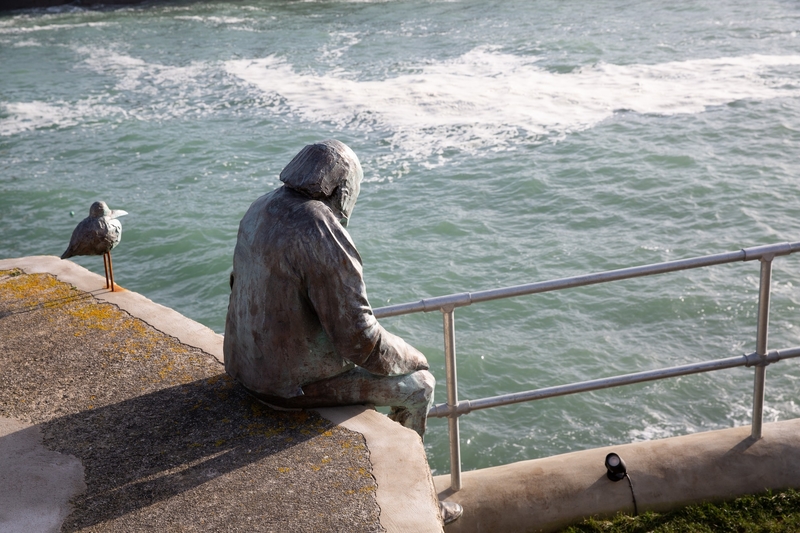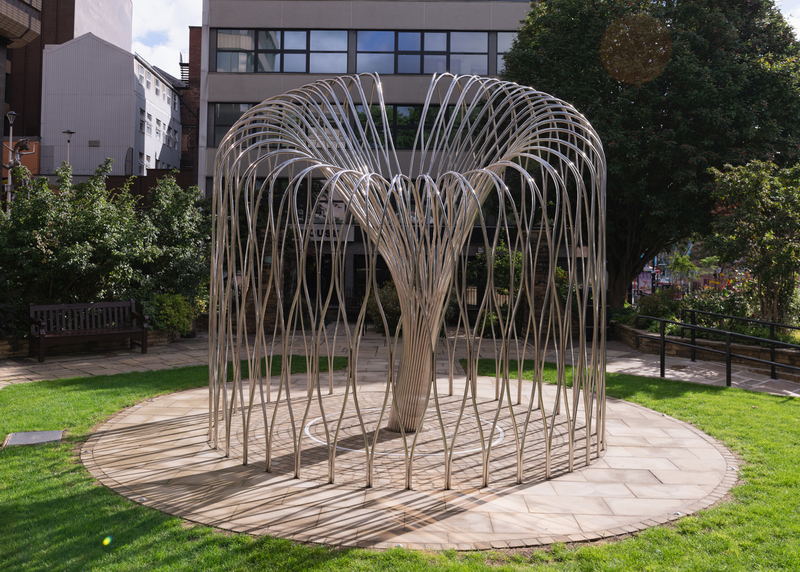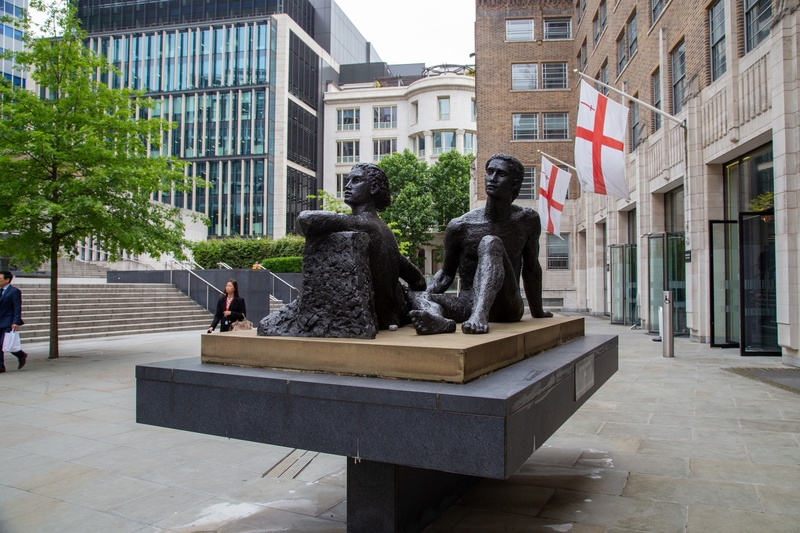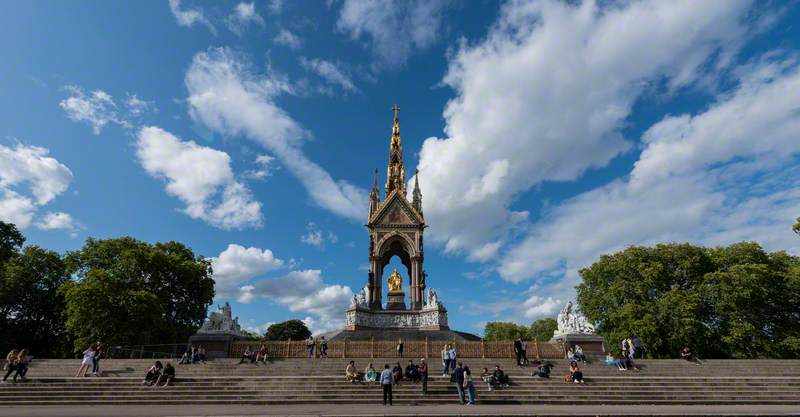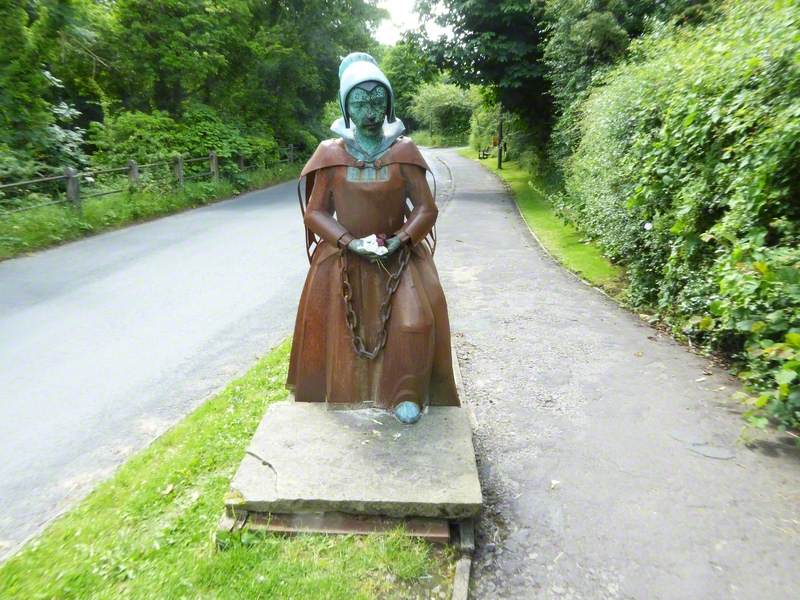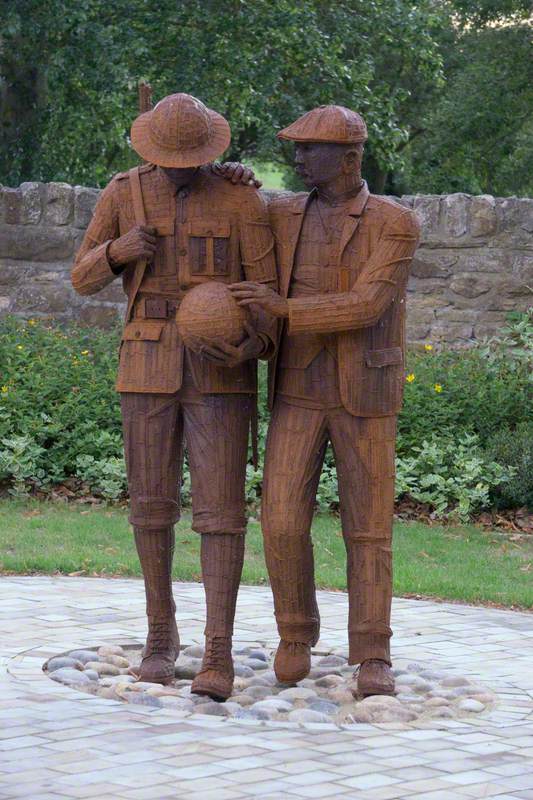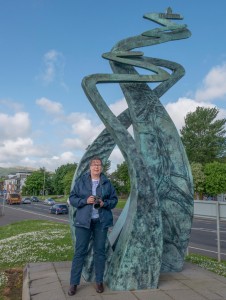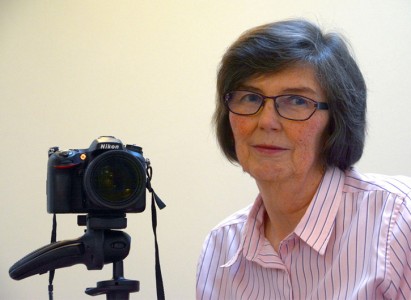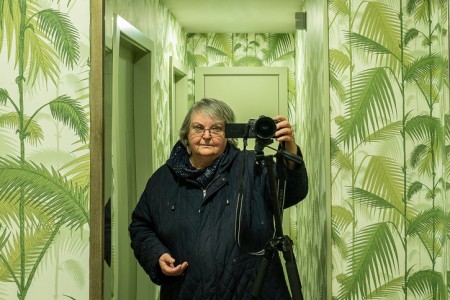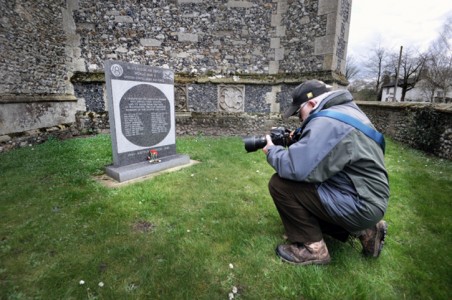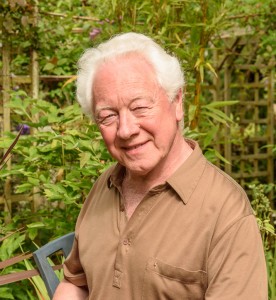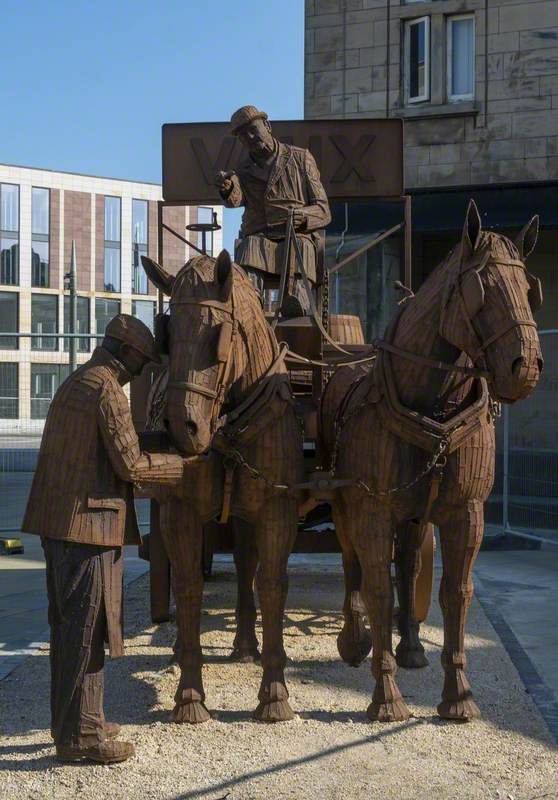Volunteers' Week 2021 has given us an opportunity to celebrate the contribution that our volunteers make to the Art UK public sculpture project. Also, after an incredibly difficult year, it is a good time to reflect on how we work with our volunteers to ensure that their experience is as rewarding and positive as possible.
Tracy's collage of Art UK volunteer selfies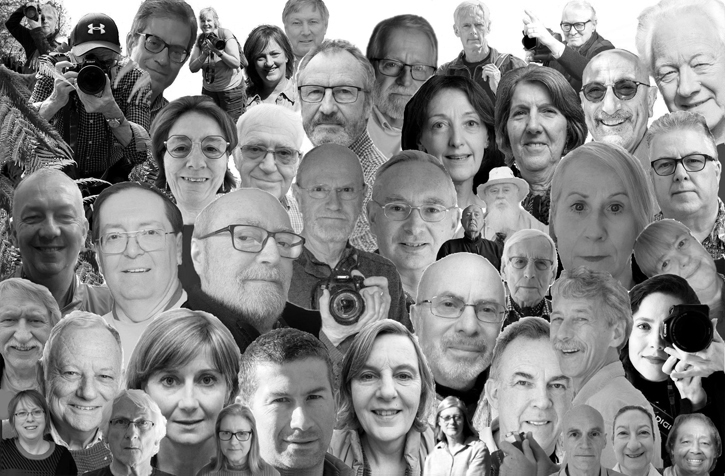
Over the past three years, we have worked with over 500 volunteers contributing in excess of 5,000 days of time – if one person were to research and photograph sculpture every day it would take 14 years for them to get to the same point as we are now. We cannot thank each and every volunteer enough: what they have created is truly staggering.
As the project has evolved, we have developed our experience in volunteer engagement and continue to do so. Here are ten things we have learnt about supporting volunteers.
1. Motivation
Understand why people want to volunteer for your project. Each and every one of them will have different reasons for engaging.
For those starting out, volunteering can provide a much-needed entry point into a sector, can add a line on the CV and tangible experience, or act as a stepping stone to paid work. Other people may be retired and have a wealth of time, knowledge and skills, and are still looking for a way to positively contribute. Some see volunteering as an opportunity to build a public portfolio of work, and for others, volunteering is a reason to get out of the house and have some time to themselves away from the pressures of work, family or caring roles. If you fail to know why volunteers are there, you will likely fail to keep them engaged.
2. Communication
You cannot communicate enough.
Remotely managing over 500 volunteers across four countries – including the islands of the UK – is a significant communication challenge. Pre-pandemic, we were able to meet volunteers through training days which helped put names to faces. In 2021, training moved online: we now have to work harder to build that rapport. Keeping in contact and having an 'open door' inbox are essential. Do not communicate only when you want something.
At Art UK, regular newsletters, a closed social media group and light-hearted competitions have kept people engaged. Volunteers have been involved in editorial content and Curations – some have been invited to events and unveilings. One even got involved in creating the sculpture he went to photograph. In a year when lockdown halted activity, it was especially important to keep in contact.
3. Flexibility
If you are committed to wider engagement then you need to know when to flex. Sometimes minor adjustments can make your opportunity accessible – sticking rigidly to a plan may turn volunteers away. We quickly found that the greatest asset in a volunteer is enthusiasm. Someone who is willing to get out there and get the task done but struggles with computers makes more impact than a person with all the latest gear and software with little motivation. This has meant we have received data and images in ways that we weren't expecting – unprocessed files, data by post or handwritten notes – adjusting to meet different needs has made a big difference. A win-win: we got some great sculpture images and data, and they were able to participate with everyone else.
4. Purpose
Be clear about what your opportunity is and ensure volunteers know what is expected. Unsuccessful volunteer scenarios arise when organisations take on people without a clear role for them, and they end up doing menial or ad hoc tasks with little thought given to their potential value and contribution. Have a role description and formal agreement forms. It is as much about what you give to them as they can give you.
5. Recognition
Ensure your volunteers know they matter and are appreciated. It is difficult to feel part of a remote project in the same way as in-person team working, but whatever the setting, it is vital that volunteers are recognised for their contribution.
We have held conferences both online and in-person, and we involved volunteers as speakers as well as delegates. Experienced volunteers have also supported new volunteers. Photographers retain copyright to their work and are always credited for images or editorial content. Volunteers' stories are highlighted through all Art UK platforms. Certificates of participation have been sent to everyone that took part. Volunteer highlights and profiles are included alongside those of paid staff in internal newsletters. We have also provided some volunteers with job and college references.
6. Value
Always remember that people are giving their time and skills freely. Above all, this needs to be valued and respected. Volunteers must be reimbursed for any expenses incurred; it should not cost them money to help you. Remind volunteers often they have the right to say no or yes. Respect first and foremost that people have lives outside of volunteering to juggle and manage – they should not feel pressured or guilt-tripped into putting you first.
Do not fall into a trap thinking that people who volunteer are low skilled or unable to get paid roles. Many of our volunteers are highly skilled professionals including doctors, engineers and teachers as well as PhD/Masters/degree students, authors and one is even an astronaut. Here, I will refer back to point one: understand what motivates them to get involved.
Ensure that you have volunteers sign agreements: for their own protection, for insurance purposes and to outline the copyright status of their work.
7. Support
Coordinating volunteers is not simply about allocating tasks and sending people on their way. Volunteers may need support. In our case, volunteers needed help to process images, complete data or find sculptures. People learn at different rates and being able to provide support through email, online conferencing or one-to-one sessions helped tailor assistance to individual needs.
During the pandemic, we have had a significant role in providing emotional support to individuals who have experienced the loss of loved ones, or personal health or employment challenges. Lockdown has had a huge impact on general well-being and mental health.
We try to help relieve any pressure and alleviate concerns and worries of volunteers, which enables them to stay engaged. If a volunteer takes time out, with the intention to get back involved again later on, this can give them something positive to aim for in the future. Life is not neat and tidy: it can get very messy and challenging for people. Volunteers genuinely do want to be involved in something positive, so how you enable them to do this speaks volumes about your organisation.
8. Friendliness and humour
Things will go wrong, be challenging and frustrating for volunteers and for yourself: how you respond to these events is important. Being able to retain perspective and not be too staid is essential. Volunteering for an organisation should be a positive experience, no matter how worthy the cause. We want people to enjoy the time with us, have stories to tell and know they have invested their time well. Providing a warm, friendly welcome in your interactions and finding the humour in situations helps build strong relationships.
9. Active participation
Have an 'all hands on deck' approach to projects. Sitting at a computer, coming up with ideas of how tasks should be done without ever experiencing them yourself will not earn you very much respect!
In running the project, volunteer managers regularly undertake all the tasks that are requested of volunteers: we actively go out into the field and photograph sculptures, compile data sheets and research artists. This means we are absolutely able to offer trusted practical advice based on personal experience.
10. Training
Volunteers need to be clear about the tasks and standards, policies and procedures that will provide the bedrock to their involvement with you. When working remotely there are added challenges and a greater emphasis on clear instruction, as you will not be there to shadow or supervise in person.
We developed a comprehensive training manual that can be printed locally if needed. We provide email support for issues and queries and we have induction training for all volunteers before they undertake any activity with us.
We avoided a London-centric approach; we traversed the country holding induction training days. For those with additional support needs, one-to-one sessions were provided.
At Art UK, we thank every volunteer that contributed their time to capturing an incredible record of public sculpture in the UK. Thanks are also extended to the Royal Photographic Society and their members – they have provided so much support throughout the project.
Tracy Jenkins, Public Sculpture Officer at Art UK
During National Volunteers' Week 2021, we celebrated by showcasing a different volunteer story each day. Read profiles by Dewi Owens, Fiona Matthewson, Helen Chester, Lawrence Suss, Susan Dawson, Mike Longhurst and Maarten Roes Francken.
